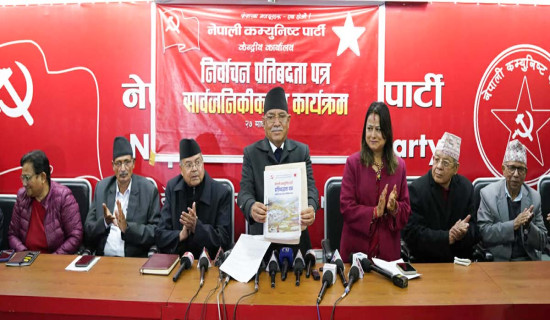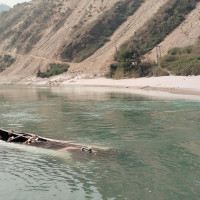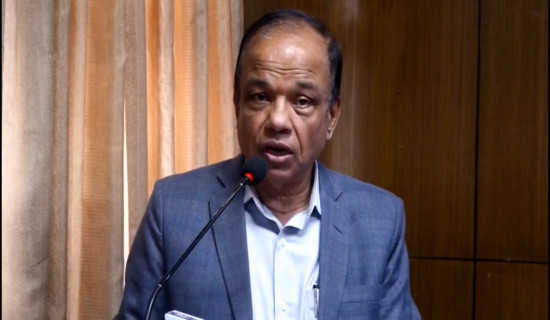- Wednesday, 11 February 2026
Impacts Of Neoliberalism On Nepal
In the early 1990s, all government institutions of Nepal were led towards implementing neoliberal policies in the public sector, initially under the tutelage of 'new public management' and later 'new public service'. Briefings and re-briefings on the open market economy were considered akin to a 'cure-all' for the economic and governance-related problems that were rooted in the daily functioning of the national economy and social life.
Global financial institutions such as the World Bank and IMF influenced the government to execute structural reforms, and accordingly, a high-level Administrative Reform Commission was formed in Nepal in 1991. Based on its recommendations, sectoral policies were changed, shifting from welfare-oriented to market-oriented economic and social policies that emphasised self-reliance and reduced government subsidies and funding.
Deregulation
The revisited and revised policies, which were criticised as donor-driven, aimed at promoting privatisation, deregulation, and open-market competition to stimulate and drive economic growth. Over the period of 35 years, since the embracing of neoliberal socio-economic policies, how much economic development has taken its better shape remains a matter of deep concern and discourse. The criticism of not implementing the neoliberal governance policies effectively may be at the apex of public sentiment, but there are specific areas where these policies have yielded positive harvests. The implementation of neoliberal governance policies, thus, has had both positive as well as negative effects on the Nepali economy, social structure and government service deliveries.
New policies were perceived more effective in their initial days, especially in the domains of foreign direct investment (FDI) and manufacturing industries. Private sector participation became markedly more active in manufacturing and service sectors than before. The Industrial Policy of 1992, followed by FDI policy and other related policy frameworks, proved to be more investment friendly that attracted both foreign and domestic investors across many segments of national economy. Sectors such as tourism, hydropower, telecommunications, hospitals, educational institutions, banks and financial institutions were established and flourished predominantly in private sector. It was a tangible manifestation of neoliberal policy.
Aside from these areas, other pivotal and critical sectors of the nation's socio-economic growth remained undernourished. Nepal's huge trade deficit serves as a stark indicator demonstrating the dusky side of an open-market economy, which advocates efficiency in the private sector. Due to several internal and external reasons, the private sector struggled to cope with the global competition and exacerbated socio-economic disparities.
The growth of private sector is relatively nascent, with limited capacity struggling to compete with its global counterparts. Conversely, Nepal became a consumer market of foreign products and it created significant pressure on national capacity and economy at large. It is not only the issue of private sector inefficiency, but also there is the weakness deeply rooted in the governance system of the country. Market regulation is one of the areas where institutional inefficiencies are glaringly visible. In the name of nurturing 'smart government', several sectoral areas previously under government control and possession were sold to the private sector through privatisation, but the privatised companies failed to run effectively as desired and projected. This shift disproportionately benefited urban elites, keeping rural people disadvantaged.
Another critical dimension of self-reliance is an agriculture-based economy, which is considered a national strength, is being replaced by imported agricultural products. It happened because of the policy of favouring imported goods that harmed local farmers, and the country lost agricultural sustainability. Consequently, farmers were compelled to abandon the cultivation of indigenous products, leaving their land barren and changing their native profession. They relied more upon being consumers rather than producers.
Despite contributing to certain sectors of social and economic life of the nation, the policy is viewed less effective - not because of the inherent flaws of policy but because of institutional weakness and poor governance system in particular. As a matter of fact, while the policy taught people about the value of openness, competition and profitability, the government did not educate them effectively about the duties and responsibilities that accompany the rights of people.
Unstable sources economy
After the implementation of neoliberal policy, Nepal has become more and more dependent on foreign aid and loan to maintain a positive national economy. This particular situation altered the trajectory of Nepal's development. The source of national revenue now relies more on customs duties on imported goods than on exports. As a result, pressure has mounted on the foreign currency reserves, which are mainly supported by remittances - an unstable source of economy.
It is not the question of the ineffectiveness of market-oriented liberal policy, but rather the question is: why was it not made thorough study before implementing the new policy. Why did policymakers neglect to analyse and assess the national strength – such as the private sector, natural resources, work culture, and governance mechanism? However, it was not possible for Nepal to go anti-current of global economic wave, but it could have designed its policies keeping in view its competitive strengths and advantages, so that foreign goods would not have flooded in Nepali market. Keeping the above context in mind, it is more important to rectify the mistakes and develop mechanisms to boost the soft power in its maximum level and focus on high- value-added products to increase exports and ensure sustainable economy.
(The author is former secretary of Nepal government.)





-square-thumb.jpg)


-square-thumb.jpg)








